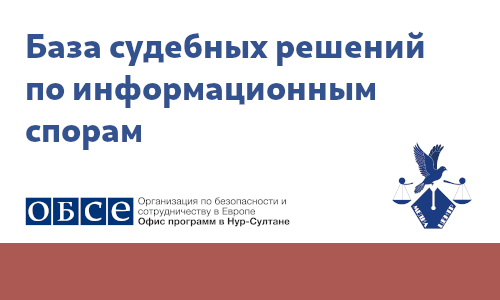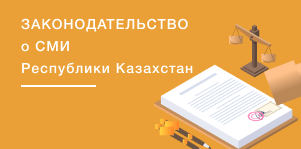

Access Now and the #KeepItOn coalition condemn the use of internet shutdowns in Kazakhstan to crush protests and provide cover for state violence, and are calling on authorities and telecommunication providers to immediately restore full and permanent access to the internet.
For more than a week, authorities in Kazakhstan have been arbitrarily manipulating and disrupting internet access across the country, leaving much of the population disconnected and uncertain about whether or when the internet will be fully accessible in the future. While the international community’s ability to connect with people on the ground has been fractured, a timeline of escalating events can be identified.
Here’s what’s happened so far, plus tools and resources to help those impacted by the shutdowns and violence.
Kazakhstan’s internet shutdowns: What’s happened so far
On January 2, 2022, people in Kazakhstan took to the streets in the city of Zhanaozen to protest the government’s lifting of liquefied petroleum gas price caps. At the same time, some activists began reporting localized internet outages.
On January 3, as the protests spread to other cities, so did the government’s reported use of localized shutdowns, and people reported mobile internet throttling in Almaty’s city center.
By January 4, as thousands more protesters across the country joined the demonstrations that now encompassed demands for socioeconomic and political reforms, Cloudflare documented internet disruptions affecting mobile services at approximately 14:30 UTC (20:30 local time), followed by a big drop in traffic at 16:00 UTC (22:00 local time), likely indicating throttling. (Please note: by Kazakhstan’s “local time” we mean the time in the capital Nur-Sultan [UTC+6], and all efforts have been made to ensure the times represented in this timeline are accurate.) Global Check reported a complete internet shutdown in Kazakhstan, and the shutdown of wire operators in Almaty at approximately the same time. This corresponds with customers of major internet service providers, such as Beeline Kazakhstan (KAR-Tel LLC), Kazakhtelecom JSC, Kcell JSC, and Tele2 Kazakhstan, spotting mobile blocking across many cities. People also reported the blocking of Telegram, WhatsApp, and Signal messenger apps in various locations. Beeline stated that the shutdown was outside of the company’s control, and Kcell claimed authorities ordered the disruptions based on the Law on Communication, “in the interests of providing anti-terrorist [sic] and public safety.”
On January 5, Kazakhstan President Kasym-Jomart Tokaev ordered the reinstatement of the gas price cap, and declared a state of emergency in two Kazakhstan regions until January 19, 2022. The authorities then plunged the whole country into darkness, starting at 10:45 UTC (4:45pm local) for approximately seven hours, blacking out the internet before lifting it apparently for a televised announcement that the Russian-led security bloc, Collective Security Treaty Organization (CSTO), was intervening to “protect the state.”
However, this restoration lasted for only about four hours, as on January 6 Nur-Sultan time, authorities cut internet access again at around 21:30-21:50 UTC (3:30-3:50am local). They restored access at around 10:45-10:55 UTC (4:45-4:55pm local). The shutdown was also visible through IODA, Cloudflare Radar, and Google traffic data. That restoration lasted for only three hours, as documented by IODA and Cloudflare, around the same time as President Kassym-Jomart Tokayev gave “urgent instructions” to the government, including prosecuting those responsible for the unrest in the country. .
On January 7, authorities briefly restored internet access starting at around 02:50 UTC (08:50am local time) but followed up with another shutdown approximately three hours later. However, experts recorded higher residual traffic levels than during the previous three shutdowns. It’s not clear if that is because this was a less severe shutdown or people in Kazakhstan found ways to circumvent it. On the same day, President Kasym-Jomart Tokaev publicly announced that he had issued a “shoot to kill without warning” order targeting protesters.
People in Kazakhstan continued to report multiple blockings and restoration of services over the next three days. Most recently, the connection appears to be restored. The international community continues to closely monitor the situation.
Impact: destroying Kazakh lives and livelihoods
The government’s use of internet shutdowns to silence protesters have left people in Kazakhstan in a state of fear and confusion. Personal banking has been hard hit. Many people have been unable to pay for food and other goods and services online, use their debit cards in supermarkets, make mobile payments, or withdraw cash. The shutdowns have negatively impacted both local businesses and major industries, and since the nation is a crypto mining hub, they also sent the price of Bitcoin tumbling.
The government is disrupting the media’s ability to report on the events, affecting local media websites and blocking independent outlets such as Orda.kz and kaztag.kz, while limiting international media’s ability to connect with people on the ground. The media blackout is so extensive that some people were not even aware CSTO troops had been deployed in their country.
Despite the government’s attempt to use shutdowns to hide its heinous actions toward its own people, reports are getting out. There are currently reported deaths of 164 people — with at least three children among the dead. An estimated 2,000 people have been injured, nearly 8,000 detained, and some protesters have allegedly been tortured to solicit forced confessions. People both inside and outside of Kazakhstan are unable to determine whether or not their families and loved ones are safe.
Kazakhstan has done this before, and things are getting worse
Kazakhstan has a history of imposing internet shutdowns during protests. Last year, authorities hit the kill switch during anti-government protests demanding the release of political prisoners. In 2019, the government of Kazakhstan throttled and blocked social media platforms when opposition groups called for a protest to coincide with World War II victory celebrations that month. In 2018, authorities throttled the internet almost daily for approximately an hour, whenever opposition leader, Mukhtar Ablyazov, streamed on Facebook Live.
The government is matching its online censorship with extensive surveillance of the population through Russian-supplied SORM surveillance infrastructure, Chinese-supplied Smart City facial recognition technologies, and use of Israeli NSO Group’s Pegasus spyware. Kazakhstan has also made attempts to exert more control over social media through proposed laws that fail to align with human rights principles.
The United Nations is stepping in
In an effort to stem the bloodshed, Michelle Bachelet, the United Nations High Commissioner for Human Rights, has “urged all, including security forces, protesters and others, to refrain from violence and to seek a peaceful resolution of grievances.”
Bachelet also stated that shutting down the internet “is not the answer to a crisis but risks fueling the violence and unrest.” and highlighted the urgent need for the internet to be “immediately and completely restored.”
How people in Kazakhstan can stay connected and safe
We are standing with the people of Kazakhstan to defend their basic rights, including the rights to privacy and free expression online, and we encourage you to do the same. Here are resources in English and Russian to help those impacted by the shutdowns circumvent platform censorship and restrictions, document and share information about the shutdowns, and evade surveillance (note however, that circumvention may not be possible in cases of complete shutdown in the country) :
- Get connected: Use this guide to Tor bridges to help circumvent shutdowns, censorship, and surveillance (in Russian and English);
- Test for online censorship: Learn about using OONI probe tools to verify network interference (including potential risks);
- Stay safe: Use these shutdown safety tips in English or Russian;
- Document rights violations: Use this guide by WITNESS in English or Russian to preserve evidence during a shutdown;
- Share your story: Use this form in English or Russian to share your experiences and help document the shutdown;
- Get expert digital security advice: If you’re a journalist, human rights defender, activist, lawyer, or part of an NGO in Kazakhstan, and you need assistance staying secure online, contact Access Now’s Digital Security Helpline. We can assist you in English and Russian;
- Learn the basics of monitoring shutdowns: Watch this webinar Monitoring internet shutdowns (in English);
- Join the fight to stop internet shutdowns: Learn about and join the global #KeepItOn campaign.
Источник: Accesnow.org





